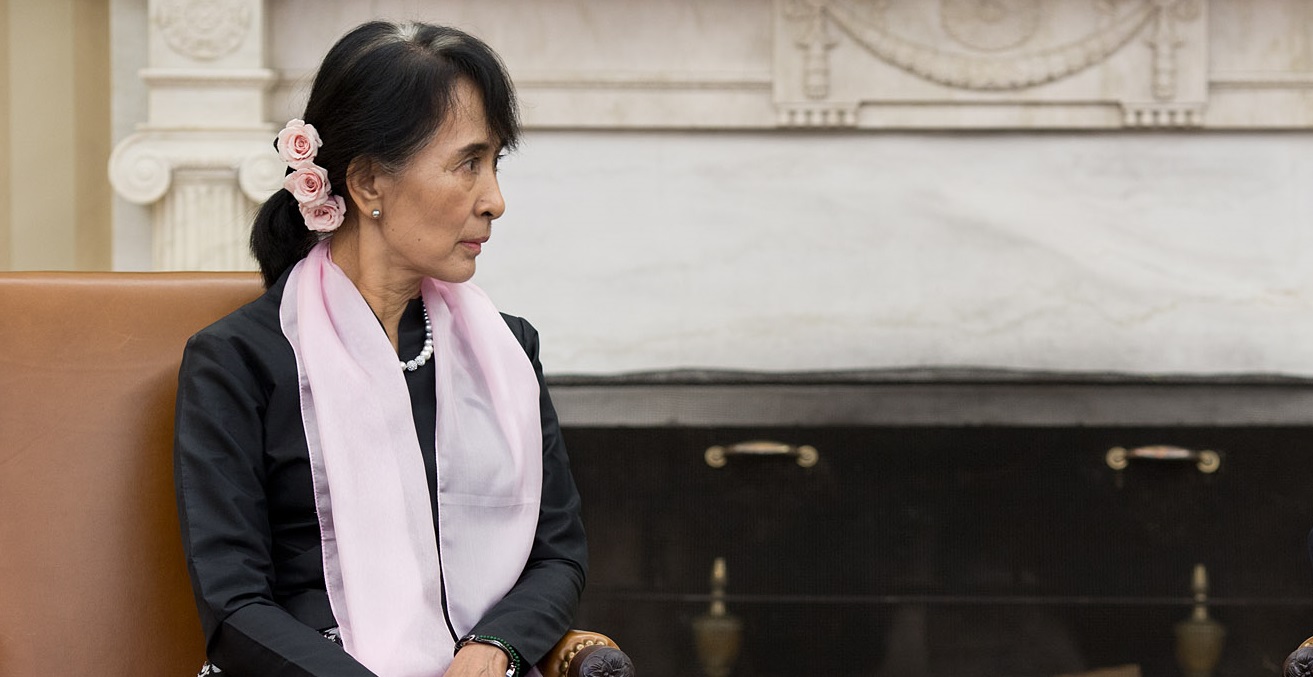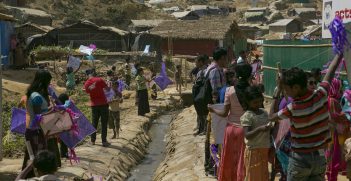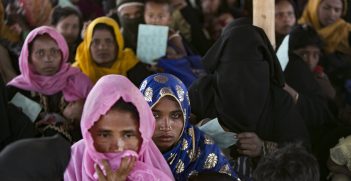The 2020 Myanmar Election: A Stride on the Road to Democracy?

This Sunday, Myanmar held the second parliamentary election since the end of five decades of junta rule. Amid economic hardships, escalating civil and ethnic upheavals, and a strained international image with the Rohingya issue, Aung San Suu Kyi’s ruling party has claimed landslide victory.
Elections pave the path toward democracy. While the world witnessed the high-drama US elections in one part of the world, another election took place in Myanmar on 8 November 2020 that is also quite significant for many. About 38 million people were eligible to vote in Myanmar this past Sunday, including five million first-time voters.
Nobel Peace Prize Laureate Aung San Suu Kyi and her National League for Democracy (NLD) were reelected to run the democratic government in Myanmar until 2026 – a repetition of the 2015’s resounding victory. Early results showed ethnic parties had won some seats in places where people had grievances against the central government’s attitude toward the ethnic minorities. But another NLD landslide victory reaffirms the popularity of Suu Kyi and her NLD among the major ethnic group in Myanmar, the Bamar Buddhist. Suu Kyi, daughter of Aung San, who is known as the Father of the Nation, is likely to remain the de facto head of government. Constitutionally, she is barred from the official presidency because both her late husband and her children are foreign citizens. However, Suu Kyi’s image as an icon of democracy has been tarnished in recent times because of her salient support of the Myanmar Army’s horrific oppression of the ethnic Rohingya Muslim minority.
For many people in Myanmar, this election was a straightforward choice between the NLD and the military-backed opposition, the Union Solidarity and Development Party (USDP). The USDP performed poorly in the election. Nevertheless, the reserved 25 percent of all seats in the national legislature and provincial assemblies (i.e., both the upper and the lower houses), as well as the control of key ministries, including defence, home affairs, and border affairs, by the 2008 Constitution validates the continued dominance of the country’s military. The 2008 Constitution also grants the military an effective veto power on any issue.
The United States, the European Union, and the United Kingdom have recognised that this multiparty election is an important step toward democracy in Myanmar but voiced concerns about the disenfranchisement of more than a million voters, including the Rohingyas. There are also concerns that this election was “fundamentally flawed” with the significant number of seats reserved for the military, the unequal campaign facilities in favour of the ruling party, including unequal party access to state-owned media, the government-imposed internet restrictions in some parts of the country particularly in Rakhine and Chin States, the disqualification of candidates based on a citizenship criterion – an issue specifically pertinent to the Rohingyas, and the cancellation of voting in some regions and parts of several states for “security reasons.” Additionally, there were bars on press coverage and civil society activities under the guise of restrictions due to the COVID-19 pandemic.
Myanmar is currently facing several internal challenges. Despite low officially recorded cases of COVID-19, the International Monetary Fund predicts social and economic downturns in Myanmar due to “the externally oriented economy, uneven social safety nets, and the fragile healthcare system.” On the other hand, there are concerns over Suu Kyi and the NLD’s commitment to addressing some critical issues such as constitutional reform and spiraling ethnic conflicts. In fact, the ruling party’s allegiance with the military, especially on the Rohingya issue, and their silence on critical reforms reestablish the validity of these concerns. Nonetheless, some expect that another five-year term will allow the ruling party to fulfill their pledges, including liberalisation of the financial and education sectors, strengthening institutional and governance systems, recovering the economy, and reinstating domestic peace.
In the international arena, Myanmar is currently facing charges of genocide at the Hague after Gambia won its petition in the International Court of Justice in January 2020. Myanmar denies this charge, claiming that the action in question was a counterattack against insurgents who had attacked police posts. The International Criminal Court is also investigating the country for “crimes against humanity.” For decades, the Rohingyas have been fleeing to neighboring countries to escape persecution by the Myanmar government. 2017 witnessed a massive influx of more than 740,000 Rohingya refugees to neighboring Bangladesh, while hundreds of thousands of Rohingyas are still confined to prison-like camps and villages in Myanmar. The Myanmar government’s denial of citizenship to the Rohingyas has stripped them of many basic human rights, including the right to vote and freedom of movement. The majority of residents in the Rakhine State were also unable to vote on Sunday as elections were canceled, citing clashes between law enforcement and the “insurgents.”
Although it is too early to say after five decades of junta-era, the tangible outcomes of the “democratic” elections, seen so far in the actions taken and not taken by the ruling party, reiterate the neocolonial, capitalistic modus operandi – the hegemony of the dominant society prevails over the disadvantaged, the oppressed, and the marginalised. Securing investments from the West, as well as from major neighbors, in recognition of reviving democratic processes in the country, Myanmar has so far feathered well into international geopolitics with covert and overt support from its “allies.” Internally, the current restricted environment, especially in relation to human rights and accountability, is likely to continue in Myanmar unless there is heightened international pressure. It is challenging to expect home-grown changes “for the betterment of all” because of the structural shortcomings resulting from the unique nature of Myanmar’s political system under the 2008 Constitution.
In postcolonial nation-states, a free and fair electoral process is a prerequisite of and the entry point for democracy. Internationally recognised elements for a free and fair election include freedom of expression, movement, and association for candidates, voters, civil society organisations, and other relevant entities, non-discriminatory treatment to candidates, and most importantly, universal and equal suffrage. These critical elements can exist only when there is an impartial, independent, and accountable administration committed to democratic process.
Most of these standards were missing in the Myanmar’s just-concluded electoral process. By allowing the dominance of the military in the country’s affairs, the 2008 Constitution impedes such a structure. And, as long these structural shortcomings are there, Myanmar will continue taking only baby-steps toward establishing a robust democratic process.
Rubayat Jesmin is a doctoral student at Binghamton University, New York, USA. For more than a decade, she has been working with development challenges pertinent to underdeveloped and developing countries – from policy to grassroots levels. Currently, she is working on refugee issues, especially the Rohingya refugee crisis.
This article is published under a Creative Commons License and may be republished with attribution.





